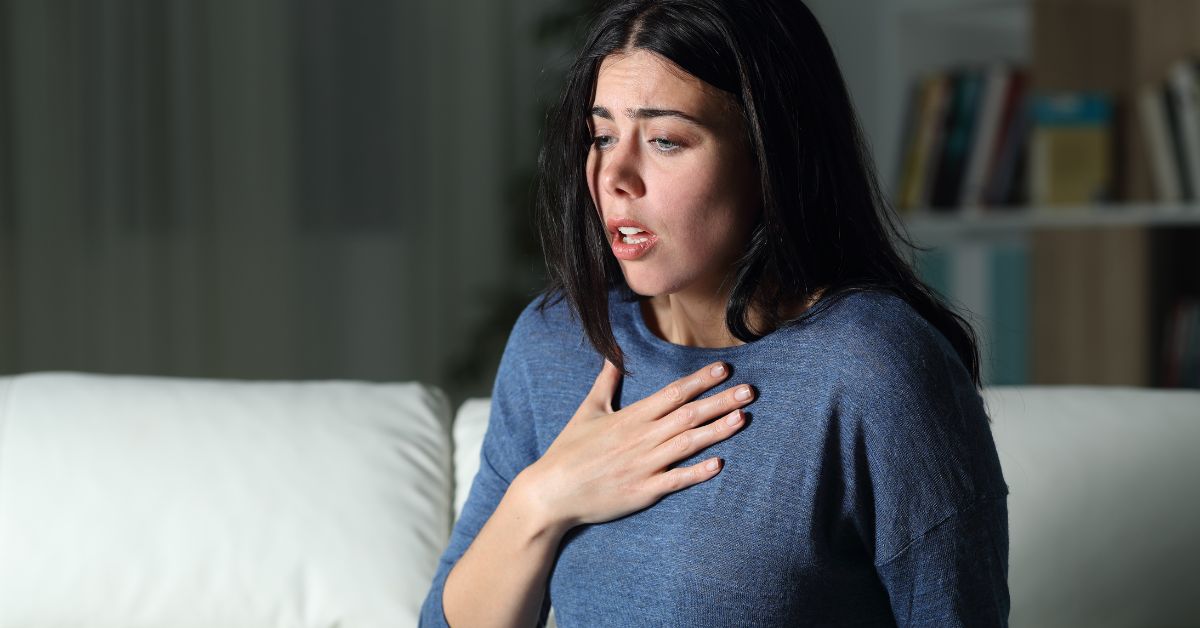
An anxiety attack is a brief period of persistent feelings of dread that results in fearful physical symptoms. These symptoms might include a racing heart, shortness of breath, faintness, shaking, and tight muscles. Specific anxiety disorders can bring on an anxiety attack. Here’s what you should know about anxiety attacks.
What is anxiety?
When you feel threatened, under pressure, or are in a difficult circumstance, like worrying about your job performance, test, or public speaking event, your body automatically goes into a fight-or-flight response, causing normal anxiety or occasional anxiety. Feelings of anxiety aren’t always a terrible thing, especially when it is in moderation. It may energize you, keep you awake and focused, and inspire you to take action and find solutions to issues. However, when worry becomes excessive or frequent, when fears and anxieties start to affect your relationships and your everyday life, you’ve probably stepped over into an anxiety disorder.
Rather than being a particular ailment, anxiety disorders are a collection of related problems. Thus, each person will experience them differently. But despite their variations, people with anxiety disorders experience intense fear or worry that is excessive for the circumstance. One of the most prevalent mental health conditions is an anxiety disorder, which is also quite curable. Here are some of the types of anxiety disorder and their precise causes and triggers.
- Generalized anxiety disorder (GAD) is characterized by excessive, irrational concern without a known reason.
- Obsessive-compulsive disorder (OCD) is characterized by distressing, intrusive thoughts and compulsions that are challenging to manage.
- Panic disorder is an ailment characterized by unexpected, abrupt panic episodes.
- Social Anxiety Disorder (SAD) symptoms include being overly self-conscious and fearing social situations and social interactions.
- Specific phobias, these phobias are characterized by extreme, overwhelming fear or extreme fear of a particular thing or circumstance. An example is the fear of spiders.
What is an anxiety attack?
Anxiety attacks are bursts of extreme dread or panic. They frequently happen abruptly and without notice. An attack sometimes has a clear cause, like having a job interview or excessive worry about performance. Other times, though, the attacks are entirely unexpected.
An anxiety episode seldom lasts more than 30 minutes and often peaks within 10 minutes. However, during that short period, you could feel such intense panic that you fear death or completely lose control. The signs alone are so ominous that they may be mistaken for heart disease or heart attack.

Anxiety Attacks vs. Panic Attacks
Numerous symptoms of panic and anxiety attacks are similar, such as sweat, racing thoughts, and a rapid heart rate. Anxiety attacks can occur without a known trigger or feelings of fear and are often milder than panic attacks. In contrast to panic attacks, which frequently entail terror of the precise location where the incident occurred, anxiety attacks typically do not.
Healthcare professionals must check physical health conditions like thyroid and respiratory difficulties before mental health professionals can diagnose panic disorder. Typically, you must have experienced recurrent panic attacks, and the episodes must have negatively affected the quality of your daily life and capacity to operate.
Symptoms
Some of the symptoms of an anxiety attack are almost similar to symptoms of a panic attack. The only difference is that they are less severe. Symptoms of anxiety include:
- A surge of overwhelming panic.
- Feeling of losing control or going crazy.
- Heart palpitations or chest pain.
- Feeling like you’re going to pass out.
- Trouble breathing or choking sensation.
- Hyperventilation.
- Hot flashes or chills.
- Trembling or shaking.
- Nausea or stomach cramps.
- Feeling detached or unreal.
What Causes Anxiety Attacks?
We all suffer anxiety occasionally. Sometimes, feelings of worry may seem to strike unexpectedly or seem to consume you. What is commonly referred to as an anxiety attack is this. You may find the experience confusing and disorienting. If you’ve ever experienced an anxiety attack, you know how difficult it can be.
You might be curious about what makes your anxiety feel unmanageable. This is entirely reasonable, and it can be beneficial to know what increases your anxiety. Once you know what triggers an anxiety attack, you can take steps to address it in the hopes of preventing future episodes.
Anxiety episodes frequently have several causes. Multiple components are often active at once. In other words, overpowering events or other unfavorable conditions frequently trigger anxiety episodes. Specific individuals appear to be more prone to anxiety and anxiety episodes. You might be more vulnerable because of certain things like:
- Genetics and family history could be great factors in acquiring anxiety.
- Chronic stress and chemical imbalances can alter our hormonal and neurological makeup.
- A trauma history or mental disorders like Post-Traumatic Stress Disorder PTSD, generalized anxiety disorder, or social anxiety.
- Environmental factors and risk factors that might increase your likelihood of ever having an anxiety attack:
- Hardship or traumatic events, particularly in childhood.
- Medical diseases, such as thyroid dysfunction or cardiac problems.
- Using substances that make you more anxious, such as caffeine or drugs that have adverse anxiety effects.
- Life circumstances and stressful situations include financial anxiety, relationship or ongoing stress for work, angst about current world events, lack of sleep, social phobia, a distressing health finding, and an identity crisis during life transitions.
How Do You Treat Anxiety Attacks?
It’s a good idea to see your healthcare provider if you’ve experienced an anxiety attack, especially if it happens frequently. To rule out any significant medical conditions that may be the source of your symptoms. Additionally, your healthcare practitioner may assist you in identifying potential causes of your panic attacks and, if necessary, can make a referral to a mental health specialist to give you treatment options.
Easing anxiety symptoms typically requires a diverse strategy, just as anxiety episodes may have several causes. Here are the types of treatment you could decide to concentrate on.
Therapy
Speaking with a therapist is one of the most excellent methods to learn what triggers anxiety attacks. Your therapist can assist you in identifying the situations that make you anxious and develop practical coping mechanisms. Cognitive Behavioral Therapy (CBT) and Exposure Therapy are some of the treatment plans that you can do, these are the most effective treatments for treating anxiety episodes.
Medication
Sometimes it makes sense to think about taking medication, either temporarily or permanently, to help you control your anxiety. As psychotherapists cannot give prescribed medications, you will need to seek assistance from a physician or psychiatrist in this situation.
Antidepressants, quick-acting anti-anxiety medications including benzodiazepines and beta-blockers, are common pharmaceuticals used to treat anxiety.
